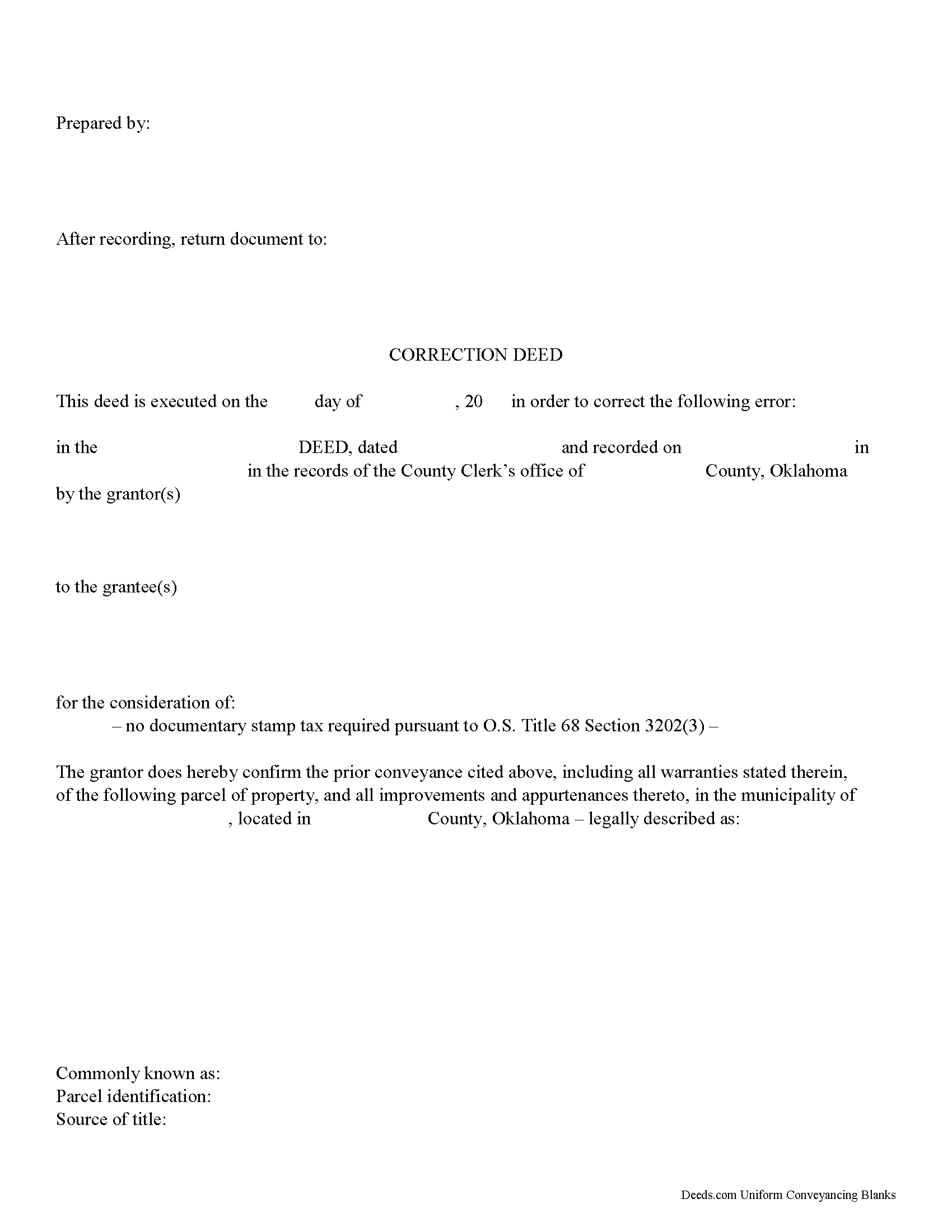Download Oklahoma Correction Deed Legal Forms

Oklahoma Correction Deed Overview

In Oklahoma, use a correction deed to amend a previously recorded deed that contains a minor error.
A corrective deed is, in effect, an explanation and correction of an error in a prior instrument. As such, it passes no title and, except for the corrected item, reiterates and confirms the prior conveyance. It should be executed from the original grantor to the original grantee, and it needs to be recorded in order to be legally valid.
The correction deed must reference the original conveyance it is correcting by type of error, date of execution and recording, as well as by recording number and location. Beyond that, it restates the information given in the prior deed, which remains on record, usually with a marginal notation to the corrective instrument.
Deeds of correction are most appropriate for minor errors and omissions in the original deed, such as misspelled names, omission of marital status, or typos in the legal description. More substantial changes, such as adding a name to the title, changing vesting information or legal description of the property, may require a new deed of conveyance instead of a correction deed.
Correction deeds are exempt from deed recording fee, often referred to as documentary or deed stamps, pursuant to Oklahoma Statutes Title 68 section 3202 (3), which exempts "deeds which, without additional consideration, confirm, correct, modify or supplement a deed previously recorded." Some counties require this exemption to be stated on the corrective instrument.
(Oklahoma CD Package includes form, guidelines, and completed example)